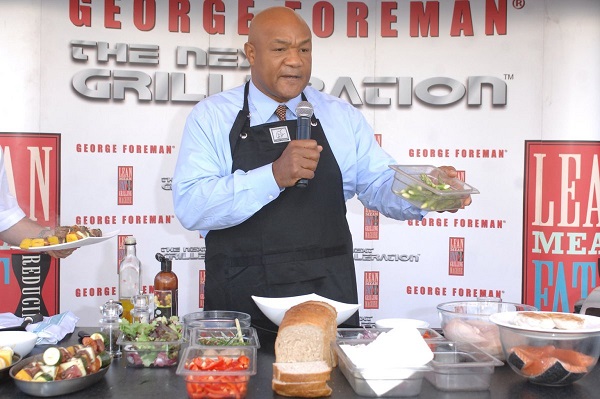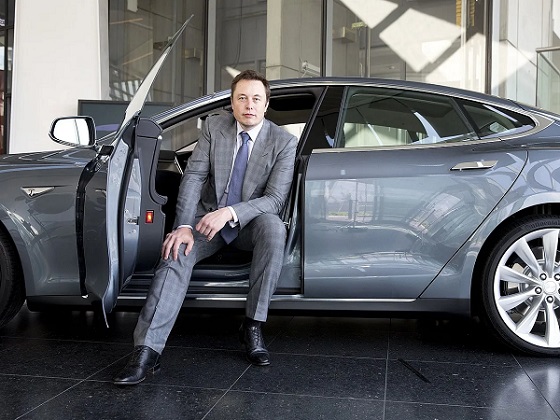Sports
You Really Don’t Know Someone Until You Ski A Mile In Their Shoes

Article By Chris Welner/HipCheck Media
Molly Miller is in a race to make the world a better place.
A rising cross-country star, Miller has her skis and her feet planted firmly on the ground. The Kimberley, B.C. Grade 12 student is a seven-time national champion in the under-16 and under-18 categories. She’s the youngest female to ever win the U-16 aggregate at nationals and was the only U-15 skier to qualify for U-20 Junior nationals in 2016.

But Miller’s accomplishments go on long after she crosses the finish line in her races. She’s also a philanthropist, with her own non-profit charity that has raised thousands of dollars and collected hundreds of pairs of shoes for those less fortunate, at home and abroad. She was awarded the Governor General’s Sovereign Award for volunteers in November.
Miller, 17, is the founder of Walk a Mile in Someone’s Shoes, a non-profit designed to raise awareness and inspire action to help those less fortunate.
“It’s nice to give back because I’ve been so fortunate in my life to have the opportunity to compete in sport at such a high level and that is something a lot of children will never have,” says Miller.
Walk a Mile in Someone’s Shoes began in 2016 with a barefoot walkathon to draw attention to the plight of people who don’t have shoes. Since then, more than $7,000 and hundreds of pairs of shoes — both new and used — have been collected and shipped to India, Haiti and to local youth in need. She credits Kimberley shoe store owner Celeste Needham with helping put her project over the top.
“Sometimes I don’t get a lot of sleep,” says Miller, speaking about a busy schedule that sees her training for skiing 50 weeks a year, maintaining her 3.9 GPA and doing her foundation work.
Come fall, she’s off to study and ski at Northern Michigan University. This week, Miller is competing in a handful of races for Team B.C. at the Canada Winter Games in Red Deer. She placed 7th on very cold day in the opening 7.5K Canada Games race on Monday at River Bend Golf and Recreation area.
Miller is also due to ski the 10K classic mass start, the 1.25K skate sprint and possibly the team relay.
Bruce Dowbiggin
Are the Jays Signing Or Declining? Only Vladdy & Bo Know For Sure


If that name sounds familiar, Teoscar was a Toronto Blue Jay from 2018-2022. He pounded 121 homers in the span as part of the Jays’ order. But when Toronto decided it needed bullpen help he was traded to Seattle in 2022 for pitchers Erik Swanson and Adam Macko. While Swanson has battled injuries and Macko is no-go, Hernandez keeps pounding the ball.
In his one year in Seattle he had strikeout problems but did hit 26 homers with 93 RBIs. In the winter of 2023-24 he signed as a free agent with the aforementioned Dodgers. Batting behind Shohei Ohtani he launched 33 homers and 99 RBIs. He won the All Star Home Run Derby. His key hit in Game 5 of the World Series propelled L.A. to the title. The stacked Dodgers liked him enough to give him a three-year, $66 million contract.
Why are we telling you this? Because the Blue Jays also started their 2025 season at home, matched against the Baltimore Orioles. And while there are reasons to believe the Jays will not replicate their 74-win disaster of 2024, there remain the old bugaboos of injuries and pitching. In the four games against the division rivals they need to beat, Jays’ pitching gave up 24 runs while scoring 18—nine of them in one game.
The splashy acquisition of 40 year old HOF pitcher Max Scherzer has already gone sideways as a bad thumb has put him on the IL. The new stopper, Jeff Hoffman, was rejected on medical grounds by two other teams before Toronto’s money made him healthy. The rest of the bullpen— a disaster in 2024— got off to a rocky start with Orioles hitters playing BP against them. They’ve already DFA’d one pitcher and called up two more from the minors. The re-made pen performed well in Game 4, but how it holds up in their next 158 games is a mystery.
On offence, while their rivals in Boston and New York added sexy pieces to their rosters the Jays were only able to acquire veteran switch-hitting Baltimore slugger Anthony Santander. More typical of their other signees is ex-Cleveland 2B infielder Andres Giminez who in 2023 had the lowest average exit velocity of all AL batters (84.8 mph), and led the AL in percentage of balls that were softly hit (21.7%). He does play a slick second base.
The winter story line for the Jays offence was what to do about Vladimir Guerrero Jr. and Bo Bichette, the erstwhile star-dust twins who were— along with Cavan Biggio— supposed to guarantee titles when they emerged in 2019. Biggio is gone, so the other two carry the credibility of the management team of Mark Shapiro and Ross Atkins. From the outside the Jays seem paralyzed to act.

While the Jays dithered, the price for players like Guerrero and Bichette soared. Using Juan Soto’s Mets $765 M deal as a yardstick Guerrero turned down a Jays offer of just under $600 M, saying he was done talking during the season. If Shapiro/ Atkins had anticipated the market Guerrero would have cost a lot less in 2023-24. If there is no progress by the trading deadline the Jays will be forced to get what they can in a trade.
Shortstop Bichette— a gifted player who battled injuries in 2024—is likewise up for a new deal. He has started strong in 2025 and would command a handsome return in a trade. He says the Jays are waiting to see what happens with Guerrero first. Having sold the pair for years to their loyal fans, having to trade them will be a massive PR blow. And while Jays’ national audience can be an advantage, having a whole country pissed with you is devastating.
The rest of the secret sauce for a Toronto comeback revolves around one of their hitting prospects taking a step forward. Any/ all of Will Wagner, Alan Roden, Addison Barger or Leo Jimenez can have a job if they show their bats are for real. Otherwise Shapiro and Atkins will hope that Dalton Varsho, George Springer and Alejandro Kirk can find a little magic in their aging bats.
A failure to retain talent may prompt fans to recall that Rogers decided that Shapiro and Atkins, who dumped Teoscar, were worthy replacements for the previous GM who’d walked away. The man Schneider and Atkins were hired to improve upon— Canadian Alex Anthopoulos— has made the Atlanta Braves a dominant team. Since AA moved to Atlanta they’ve won 90, 97, 38 (Covid year), 88, 101, 104, 109, 89 games. They’ve won a World Series and two other playoff series. They won six straight NL East titles before injuries sank them last year.
The Braves have developed young everyday superstars like Ronald Acuńa Jr. who don’t get picked off second base. They have built a pitching staff largely from within, not splashy FA signings. They have swagger without cockiness. They are set for years to come.
The Blue Jays? Since AA left they’ve won 73, 67, 32 (Covid), 91, 92, 89, 74 games. They’ve won zero postseason games while missing the playoffs in four seasons. The players they traded are starring for other teams in the postseason. They are again employing an inexperienced company guy as manager.
While it’s true that the sun can’t shine on the same team every day, Jays fans believe it would be nice if the great orb would find their club as it did back in the 1992/93 World Series days. Instead of the reflected glory of past stars winning for other teams. Patience is thin. And time is ticking.
Bruce Dowbiggin @dowbboy is the editor of Not The Public Broadcaster A two-time winner of the Gemini Award as Canada’s top television sports broadcaster, his new book Deal With It: The Trades That Stunned The NHL And Changed hockey is now available on Amazon. Inexact Science: The Six Most Compelling Draft Years In NHL History, his previous book with his son Evan, was voted the seventh-best professional hockey book of all time by bookauthority.org . His 2004 book Money Players was voted sixth best on the same list, and is available via brucedowbigginbooks.ca.
Bruce Dowbiggin
From Heel To Hero: George Foreman’s Uniquely American Story

“The more you learn, the more you realize how much you don’t know.”— George Foreman
For those who thought Donald Trump’s role progression (in WWE terms) from face to heel to face again was remarkable, George Foreman had already written the media book on going from the Baddest Man in the World to Gentle Giant.
It’s hard for those who saw him as the genial Grill Master or the smiling man with seven sons all named George (he also had seven daughters, each named differently) to conjure up the Foreman of the 1970s. He emerged as a star at the 1968 Olympics, winning the gold medal in heavyweight boxing. His destruction of a veteran Soviet fighter made him a political hero. In an age that already boasted a remarkable heavyweights Foreman was something unique.
Muhammad Ali, Joe Frazier, Ken Norton, Ron Lyle and Jimmy Ellis were still bankable household names for boxing fans— but on the downside of famous careers. They each had their niche. Foreman was something altogether different. Violent and pitiless in the ring. Unsmiling as he dismantled the boxers he met on his way to the top. He was the ultimate black hat.
With the inimitable Howard Cosell as his background track , he entered the ring in 1973 against the favoured ex-champ Frazier, coming off his three epic fights with Ali. While everyone gave Foreman a chance it was thought that the indomitable Frazier, possessor of a lethal left hook, would tame the young bull.

Instead, in under two rounds of savagery , Foreman sent Frazier to the canvas six times. Cosell yelled himself horse crying, “Down goes Frazier! Down goes Frazier!” This was a whole new level of brutality as the poker-faced Foreman returned to his corner as the most feared boxer on the planet. For good measure Foreman destroyed Norton in 1974.
Fans of Ali quaked when they heard that he would face Foreman’s awesome power in Africa in the summer of 1974. They knew how much the trio of Frazier brawls had taken from him. The prospect of seeing the beloved heavyweight champ lifted off his feet by Foreman’s power left them sick to their stomach. Foreman played up his bad-boy image, wearing black leather, snarling at the press and leading a German shepherd on a leash.
Everyone knows what happened next. We were travelling the time in the era before internet/ cell phones. Anticipating the worst we blinked hard at the headline showing the next day that it was a thoroughly exhausted Foreman who crumbled in the seventh round. The brilliant documentary When We Were Kings is the historical record of that night/ morning in Kinshasa. The cultural clash of Ali, the world’s most famous man, and the brute against the background of music and third-world politics made it an Oscar winner.
But it’s largely about Ali. It doesn’t do justice to the enormity of Foreman’s collapse. Of course the humiliation of that night sent Foreman on a spiritual quest to find himself, a quest that took the prime of his career from him. It wasn’t till 1987 that he re-emerged as a Baptist minister/ boxer. With peace in his soul he climbed the ranks again, defiantly trading blows in the centre of the ring with opponents who finally succumbed to his “old-man” power.
Instead of the dour character who was felled by Ali, this Foreman was transformed in the public’s eye when he captured the heavyweight title in 1994, beating Michael Moore, a man 20 years his junior. He smiled. He teased Cosell and other media types. He fought till he was 48, although he tried to comeback when he was 55 (his wife intervened)

And, yes, for anyone who stayed up late watching TV there was the George Foreman Grill, a pitchman’s delight that earned him more money than his boxing career. HBO boxing commentator Larry Merchant commented that “There was a transformation from a young, hard character who felt a heavyweight champion should carry himself with menace to a very affectionate personality.”
There was a short-lived TV show called George. There was The Masked Singer as “Venus Fly Trap”. And there were the cameos on Home Improvement, King Of The Hill and Fast ’N Loud, delighting audiences who’d once reviled him. He cracked up Johnny Carson.
Foreman’s rebound story was uniquely American. Where Canadians are enthusiastically damning Bobby Orr and Wayne Gretzky for political reasons, Foreman never became a captive of angry radicals or corporate America. He went his own way, thumping the bible and the grill. Rest easy, big man.
Bruce Dowbiggin @dowbboy is the editor of Not The Public Broadcaster A two-time winner of the Gemini Award as Canada’s top television sports broadcaster, his new book Deal With It: The Trades That Stunned The NHL And Changed hockey is now available on Amazon. Inexact Science: The Six Most Compelling Draft Years In NHL History, his previous book with his son Evan, was voted the seventh-best professional hockey book of all time by bookauthority.org . His 2004 book Money Players was voted sixth best on the same list, and is available via brucedowbigginbooks.ca.
-

 2025 Federal Election1 day ago
2025 Federal Election1 day agoWEF video shows Mark Carney pushing financial ‘revolution’ based on ‘net zero’ goals
-

 Crime2 days ago
Crime2 days agoFirst Good Battlefield News From Trump’s Global War on Fentanyl
-

 2025 Federal Election1 day ago
2025 Federal Election1 day ago‘Coordinated and Alarming’: Allegations of Chinese Voter Suppression in 2021 Race That Flipped Toronto Riding to Liberals and Paul Chiang
-

 Break The Needle2 days ago
Break The Needle2 days agoWhy psychedelic therapy is stuck in the waiting room
-

 2025 Federal Election1 day ago
2025 Federal Election1 day agoThree cheers for Poilievre’s alcohol tax cut
-

 2025 Federal Election1 day ago
2025 Federal Election1 day agoMORE OF THE SAME: Mark Carney Admits He Will Not Repeal the Liberal’s Bill C-69 – The ‘No Pipelines’ Bill
-

 2025 Federal Election1 day ago
2025 Federal Election1 day ago‘I’m Cautiously Optimistic’: Doug Ford Strongly Recommends Canada ‘Not To Retaliate’ Against Trump’s Tariffs
-

 Automotive2 days ago
Automotive2 days agoTrump Must Act to Halt the Tesla Terror Campaign









